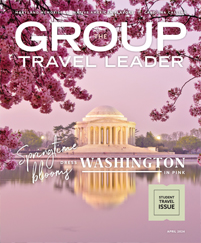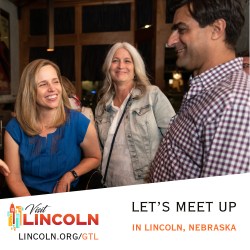The American Bus Association (ABA) welcomed more than 3,300 delegates to its annual Marketplace conference last month and has experienced a surging growth in membership that points to boom times for the association and its constituents.
“We brought in 615 new members here, which is a high-water mark by about 200,” said Peter Pantuso, ABA president and CEO. “I would like to think it’s because we are doing a good job representing our members.”
ABA’s growth comes in an economic environment that also promises growth for many of its members. Travel companies such as airlines and hotels raised prices throughout 2016, and some terrorism in popular destinations in Europe have led many travelers to focus their attention on domestic destinations for 2016 and 2017, according to tour operators who attended the convention.
“For our industry, I think the outlook is very strong,” Pantuso said. “People are telling us that 2015 and 2016 were their best years ever. All of the elements are coming together for the group travel industry.”
The convention, which was held in Cleveland, took place January 14-17, just days before the presidential inauguration of Donald Trump, so the transition to new political leadership was topic of frequent discussion. And while there are many unknowns when a new president — especially one as unpredictable as Trump — takes office, Pantuso said that the new administration will present some positive opportunities for the association and the tourism industry in general.
Recent years have brought a bevvy of new transportation regulations, he said, some of which have been perceived as onerous by motorcoach companies. Trump, who ran on a platform of widespread deregulation, may offer some relief on that front.
“We don’t think we’ll see as much regulation from the federal government in 2017,” Pantuso said. “Instead, we’ll see a lot of new relationship building in government. We have good channels to be able to give input into the regulation process, and there are a lot of things we have sent to the new administration, things we would like to see change. The administration has already identified infrastructure and tax reform as priorities, and we’re going to focus on that, because the bus industry is very capital-intensive.”
Members did spend some time discussing challenges facing the industry, though. At the forefront of discussion in one trends panel was a driver shortage that has left many coach companies short-staffed and has even forced some tour operators to alter itineraries.
“Our biggest challenge right now is finding drivers,” said Donald DeVivo, president of the DATTCO transportation company in Hartford, Connecticut. “The mindset of millennials and what they want from a career is different. The lifestyle of a motorcoach operator can be exciting and all-consuming, but this new generation has the idea that they should have some life outside of work. It’s a challenge for us to create the job so that it’s attractive to them.”
Coach operators also talked about the technological demands of today’s travelers, which have forced many companies to make significant investments in their buses’ on-board technology.
“We’re finding that people want to watch their own videos on board, instead of watching one together,” said Michael Colborne, president and CEO of Pacific Western Transportation in Canada. “They want to be able to plug in their devices and do full video streaming, which takes a lot of bandwidth.”
“The bus could break down,” DeVivo said in response, “and people wouldn’t care as long as the WiFi is still working.”











